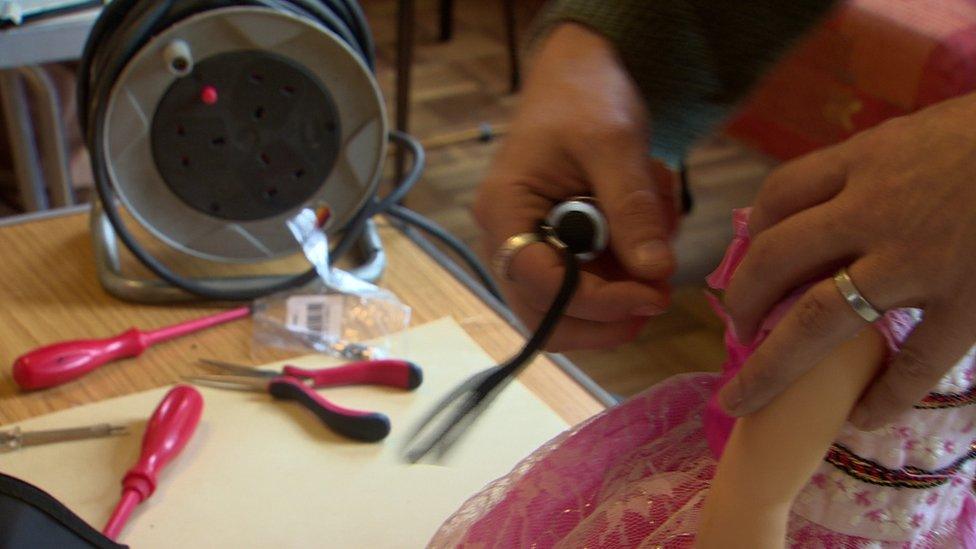Mending old sewing machines in Northern Ireland for new life in Tanzania
- Published
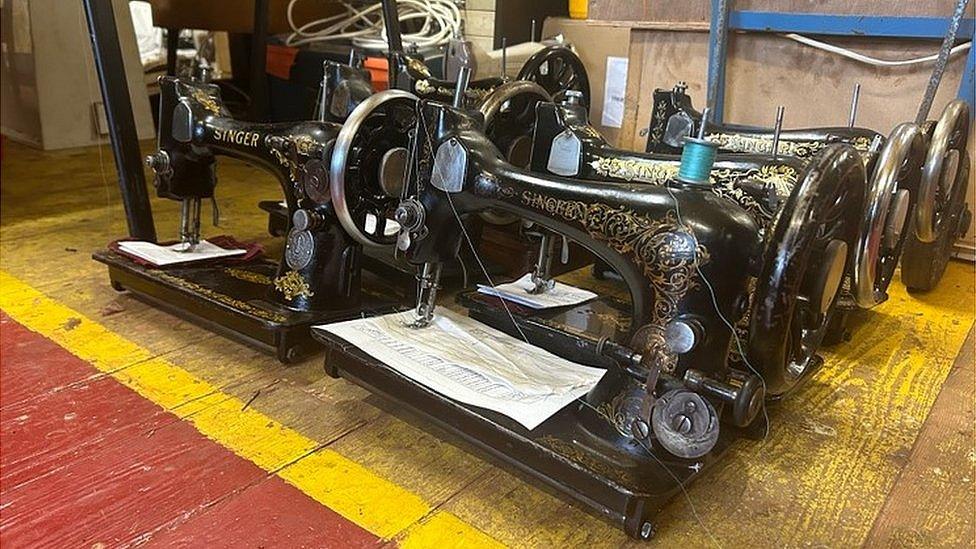
Old sewing machines were made to stand the test of time, according to the Tools for Solidarity charity
Have you got an old sewing machine at home, sitting gathering dust?
As the saying goes, one man's trash is another man's treasure - and that is certainly the case for one Belfast-based charity.
Tools For Solidarity has been sending sewing machines to people in Africa since 2006.
"We want the old, rusty sewing machines in the shed because they are superior," workshop manager John Wood told BBC News NI.
The charity said it is making dreams come true for people in Tanzania.
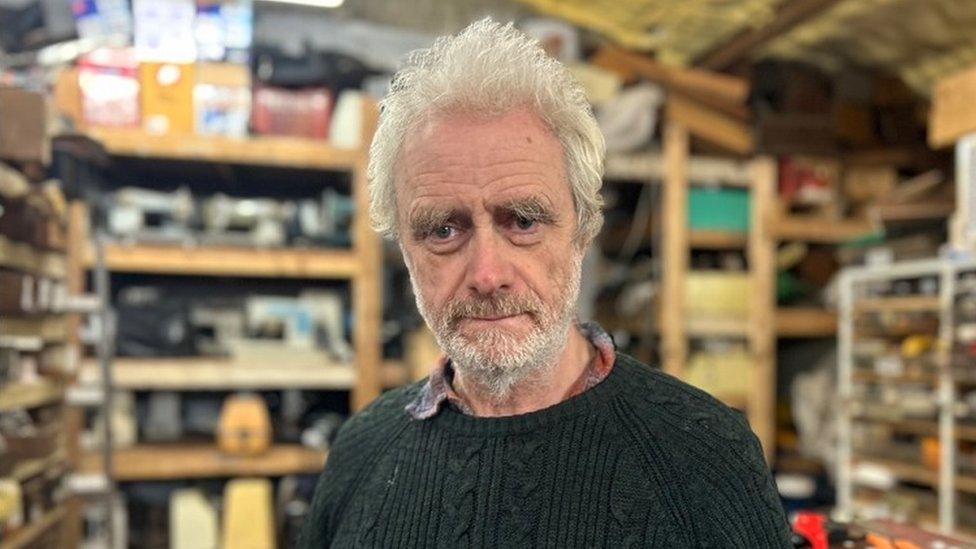
John has been travelling to Africa for nearly 40 years
"We refurbish about 20% of what we send out - the idea is to transfer the skills and the ability to do the work in the country," said Mr Wood.
"Rather than us doing the work, getting those out in Tanzania to take on the work means they can repair, fix and train other people, cutting out the middle man which is us."
The project was set up in Tanzania due to John's previous work.
"When we got to Tanzania, I had already worked there as a water engineer so I had connections and we could piggy back off another organisation that had begun charity work there," he said.
But why old sewing machines?
"These older machines need a bit of work and then they run like new - the machines you get in China just are not efficient and too expensive for what they offer," he said.
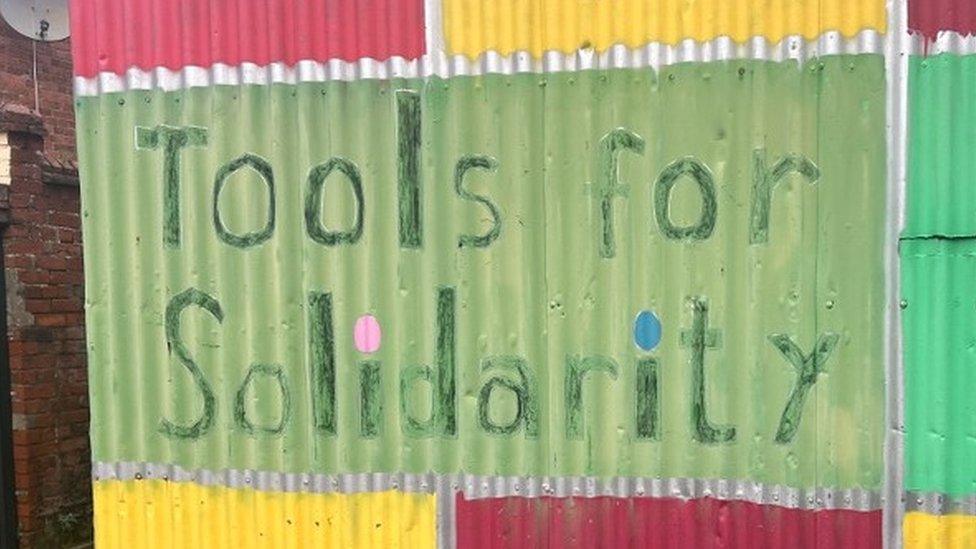
The charity, based off the Ormeau Road, started in 1984 and has helped thousands of people across Africa
The project sends donated sewing machines and tools from Northern Ireland to Tanzania at least once a year.
When they arrive in Tanzania, people can buy them at a cheap rate and free training in sewing, tailoring, maintenance and business is provided.
The primary target group is women in rural Tanzania.
"They don't get access to good quality machines, they would buy them from China and they're quite expensive," said Mr Wood.
"For these women, what activities can they do that will bring in an income other than basket weaving? It's tailoring.
"It is one of the few trades that women can get an income for themselves and their families."
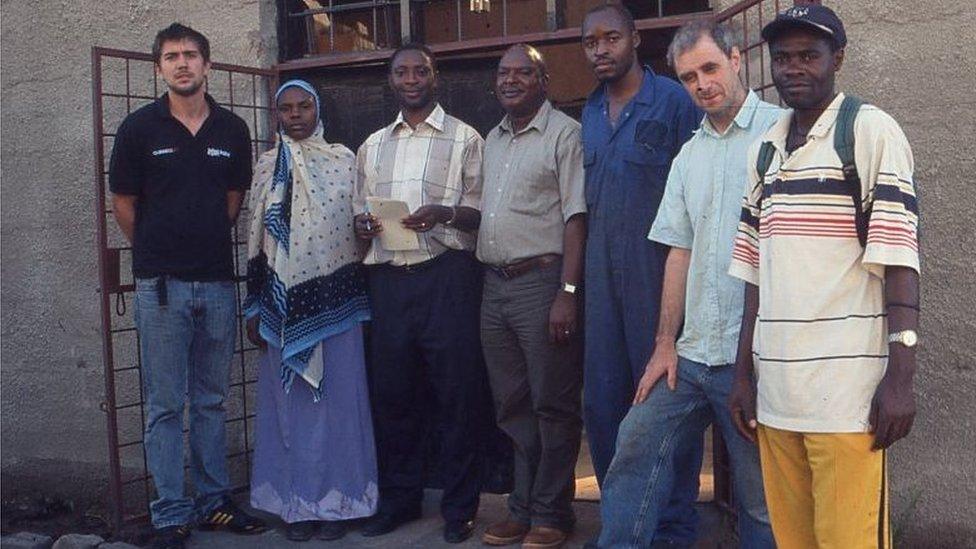
John Wood in Tanzania at the training centre where people are given free training
Mr Wood said a survey asked the women what they wanted and it was sewing machines, training in tailoring and to gain maintenance skills.
The Mwanza Sewing and Training Centre was then set up.
"We provide training, maintenance training, business training and sewing machines - and we have people in the country that can pass on those skills through the centre," he said.
"The training can transform people because they now have locally made clothes for the likes of children that they would have had to travel very far to get before and they are expensive.
"It means they can put a roof over their heads, buy better quality seeds to grow better food - to make money, to live.
"We found women who were watching videos on YouTube on how to sew but they had no equipment to do it, so this was a dream, and now it's a reality."
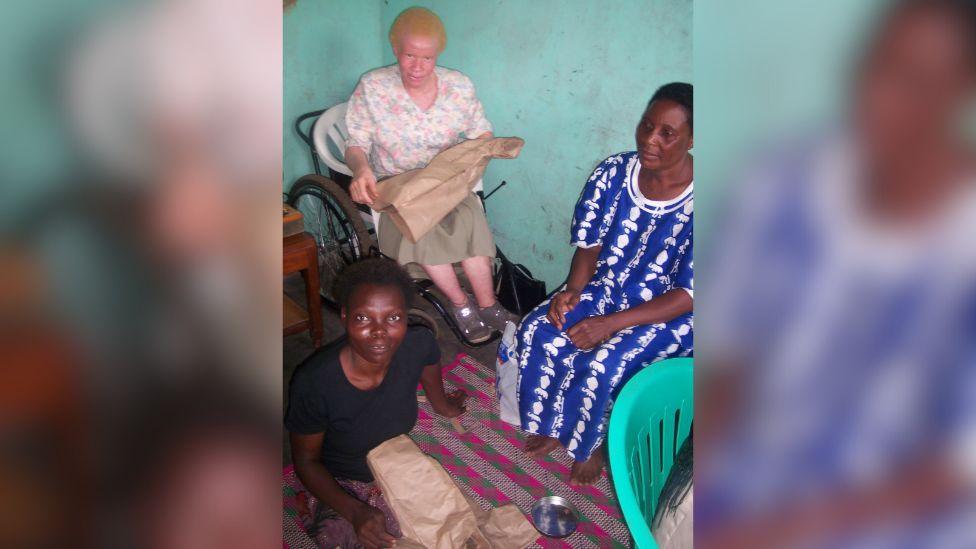
Disabled women are often left without support, but the project offers them the chance to grow skills
The project also trains people with disabilities in Tanzania.
Sofia Tagliani is a partnership worker with the charity.
"It is honestly very rewarding to see these people get the help they deserve, the resources for the artisans to grow their business," she said.
"On my last field trip, it was an amazing moment. We met a women with hearing impairments who had benefitted from the project and had set up her own shop.
"We got to the shop and she had 10 women there, who are also disabled - she had trained them. Her business had flourished.
"These women are facing extra barriers in many ways - limited access to healthcare - and in gaining independence, there's a lot of prejudice they face. To see this achievement was incredible."
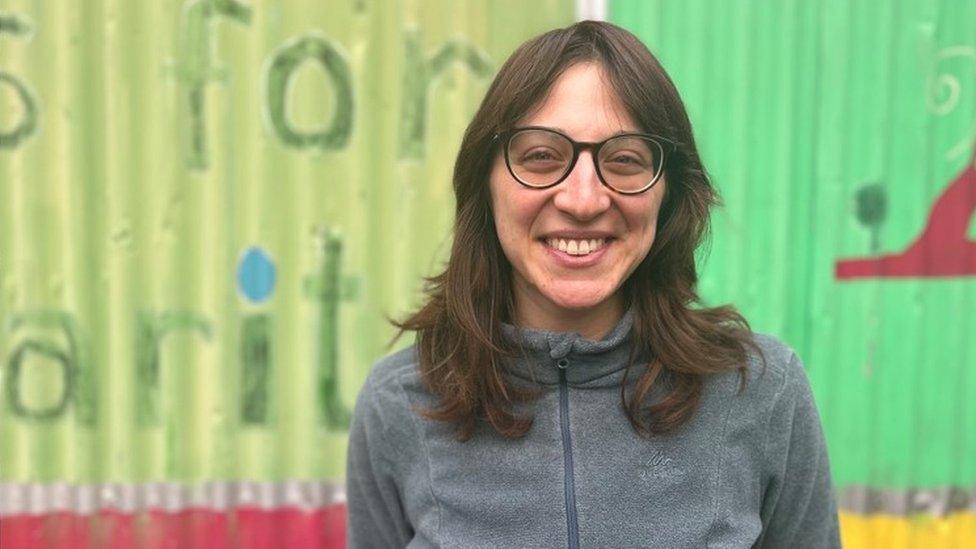
Sofia said the project is vital and extremely rewarding to see how it impacts day to day life for those involved
For more access, more sewing machines are needed.
"If possible, the more machines we get the more we can offer people in Tanzania," she said.
"People are very generous but it needs to continue."
Related topics
- Published29 October 2023
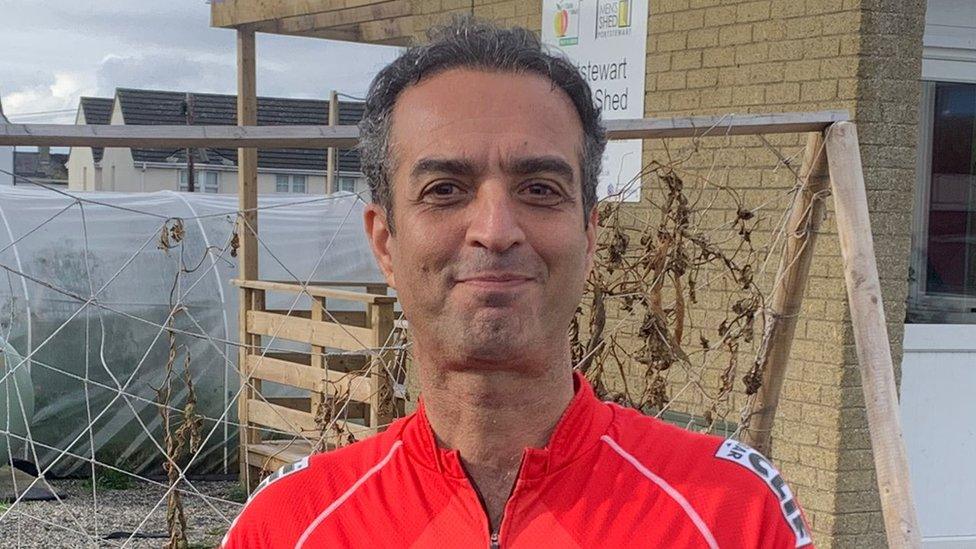
- Published25 February 2018
